The Financial Technology Report is pleased to announce The Top 100 Financial Technology Companies of 2021. This year’s recipients comprise a broad range of companies from well-known names like Square, Stripe, and Robinhood to relatively newer but rapidly growing enterprises such as Dave, Petal, and Hippo. The diverse range of products and services offered through financial technology - payment processing, online and mobile banking, online lending, P2P payments, financial software and services to name a few - have led to the possibilities for transforming not only the financial industry, but other sectors such as hospitality, education, transportation, and fundraising, among others. Financial technology advancement creates an ecosystem where businesses can work more collaboratively and ultimately put more financial control in the hands of companies, business owners and consumers.
In today's connected environment, financial solutions need to be accessible, uncomplicated, and robust in order to support our thriving and complex global economy, particularly when global crisis can quickly occur. Financial technology, once understood as technology applied to the back office of banks or trading firms, now describes a broad variety of innovations in personal and commercial finance. The pioneering companies noted in this list have one thing in common: they are nimbler than their traditional financial services predecessors, often finding white spaces in personal and commercial finance and providing faster, more streamlined, and highly individualized service. These awardees are evidence that financial technology has unquestionably evolved.
The following awardees were nominated and selected based on a thorough evaluation process. Among the key criteria considered were product quality, customer adoption, management team caliber, organizational effectiveness, and company growth among other factors. Please join us in recognizing The Top 100 Financial Technology Companies of 2021.
 1. Square, Inc.
1. Square, Inc.
Category: Merchant Payments
Square, Inc. was founded in 2009 in St. Louis, MO. Today, it is headquartered in San Francisco, CA and has offices in the United States, Canada, Japan, Australia, Ireland, Spain, Norway, and the U.K. Over the years, Square, Inc. has been recognized as a leading innovator and a desirable employer.
The company builds tools that empower businesses and individuals to participate in the economy. Sellers use Square to reach buyers online and in person, manage their business, and access financing. Individuals use Cash App to spend, send, store, and invest money. TIDAL, Square’s global music and entertainment platform, helps give economic empowerment to artists worldwide.
As of December 31, 2020, the company had a total of 5,477 employees worldwide. Square, Inc.’s 2020 gross profit was $2.73 billion — an increase of 45% from 2019. Recently, the company was placed on the 2021 Fortune 500 list, placed #1 on Blind’s Recommended Companies to Work For, and was listed as one of Fast Company’s Best Workplaces for Innovators.
 2. Stripe
2. Stripe
Category: Merchant Payments
Stripe is an online payment processing platform that enables businesses to send and receive payments over the internet. Businesses of all sizes — from new startups to public companies like Salesforce and Facebook — use Stripe’s software to accept payments and run global operations.
In 2010, Irish entrepreneur brothers Patrick and John Collison founded Stripe to gain their share in the online payments sector, which was then a burgeoning market with boundless growth opportunities. Stripe was launched publicly in September 2011 after receiving a $2 million investment from venture capitalist Peter Thiel, Sequoia Capital, and Andreessen Horowitz.
Today, some of the world’s best companies use Stripe as their preferred payments processor, such as Amazon, Shopify, Github, Yelp, Spotify, Uber, TED, Lyft, Reddit, and hundreds of others worldwide. The 11-year-old company recently announced the launch of a new product called Stripe Identity — a self-service tool that companies can use to verify user identities, with customer data managed in an encrypted format using computer vision and machine learning to “read” and match up government IDs with live selfies.
 3. Finastra
3. Finastra
Category: Banking Technology
With a clear vision that the future of finance is open, Finastra aims to unlock the potential of people, businesses, and communities by empowering financial institutions with best-of-suite applications, marketplaces, and its open platform. Founded in 2017 by the combination of Misys and D+H, the company’s open platform accelerates collaboration and innovation in financial services, creating better experiences for people, businesses, and communities.
Supported by the broadest and deepest portfolio of financial services software, the company delivers its vitally important technology to financial institutions of all sizes across the globe, including 90 of the world’s top 100 banks.
With revenues of $1.9 billion and 8,600+ employees around the world, Finastra’s open architecture approach brings together a number of partners and innovators. Together, they lead the way in which applications are written, deployed, and consumed in financial services to evolve with the changing needs of customers.
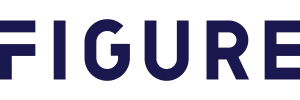 4. Figure Technologies
4. Figure Technologies
Category: Consumer Lending
Figure Technologies supplies consumers with financial solutions for debt consolidation, home improvement, retirement planning, and more. The company’s blockchain protocol, Provenance, facilitates equity management, loan origination and payment, banking, and private fund services for its customers. Provenance has been successful in reducing overhead and simplifying the regular audit process for loan buyers and sellers with DLT.
Figure acquired approval from the SEC to function as a broker-dealer and operate as an Alternative Trading System for digital securities that are housed on Provenance or a DLT network. Michael Cagney, who co-founded Figure in 2018 and serves as its Chief Executive Officer, recently filed for the company to receive a national bank charter. This would allow Figure to offer its nontraditional financial services to consumers in underbanked areas or tough credit environments.
Following a recent Series D round of funding totaling $200 million, Figure has reached a $3.2 billion valuation. The money will be used to further hone the Provenance blockchain technology. Around $3 billion in funds have been traded through the platform to date.
 5. Personal Capital
5. Personal Capital
Category: Wealth Management
Personal Capital is a remote-delivery, industry-leading digital wealth management company that helps people transform their financial lives through technology and advisory services. The company’s state-of-the-art tools and technology provide consumers with a holistic financial picture and are used by over 3 million people to track $1.2 trillion in account assets (as of 5/31/21).
Its wealth management advisors provide expert guidance, and customized strategies, based on a personal understanding of an investor’s financial picture and goals. The company was founded by Bill Harris in 2009, and has achieved an extensive list of accolades, including being named “Best Financial App” by Money Under 30, and “Best App for Investors” by CNBC in 2021.
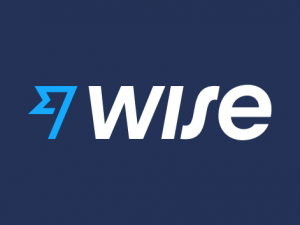 6. TransferWise
6. TransferWise
Category: Money Transfer
Wise — known as TransferWise until earlier this year — is a money transfer service that allows private individuals and businesses to send money abroad without hidden charges. Wise is straightforward, with a homepage boasting a cost calculator that makes it easy to see fees and rates, and FAQs that are well-organized and helpful. Transfer rates from U.S. dollars are guaranteed once established, and transfers that have yet to be converted or paid can be canceled.
The company was launched in 2011 by Estonian friends Taavet Hinrikus and Kristo Käärmann. Frustrated with the steep fees they faced sending money between the UK and Estonia, the pair worked out a new way to make cross-border transfers at the real exchange rate. Today, its multi-currency account helps over 10 million people and businesses manage their money across the world. The fintech giant recently celebrated a remarkable stock market debut, which valued the company at over $11 billion.
 7. AvidXchange
7. AvidXchange
Category: Business Payables
Over its 21-year history, AvidXchange has become an industry leader in transforming invoice and payment processes for mid-market businesses. Founded in Charlotte, North Carolina with the goal of reimagining the bill paying process, the company is now a top provider of accounts payable and payment automation solutions with 1,500 employees covering more than 6,000 North American companies.
Led by Chief Executive Officer, Co-Founder, and Board Member Michael Praeger, AvidXchange enjoyed a record-breaking 2020, processing over 53 million transactions with upwards of $145 billion in spending under management. The company has paid around 700,000 suppliers through its network since 2016. Three of its popular AP software products are: AvidBuy for purchase order automation, AvidPay for full-service bill payment, and AvidInvoice for paperless invoice processing.
AvidXchange has announced a new integration with Timbercan to deliver construction industry professionals a comprehensive purchase-to-pay Ap solution. The integration enables “AvidSuite for Construction,” which can communicate directly with construction accounting systems. This system will facilitate secure payments through the bustling AvidPayNetwork. AvidXchange was featured as one of the top companies in this year’s Social Good Report, which evaluates the community relations of locally based companies and champions partnerships between businesses and nonprofits in Charlotte.
 8. Bright Health
8. Bright Health
Category: Healthcare Payments
With over 200,000 patient-members spread across 12 states, Bright Health has cornered the insurance market with a personalized, online healthcare platform that makes appointment scheduling and bill payment a breeze. It is an exclusive provider organization proffering an interconnected network of Care Partners — a curated group of hospitals, clinics, and doctors.
Founded in 2015, this Minnesota-based company quickly moved beyond its original test market of Colorado. Executive Chairman and Co-Founder Bob Sheehy took his three decades of experience in healthcare technology development and created Bright with internal physician and health informatics expert Tom Valdivia. Early 2020 saw the introduction of Mike Mikan, formerly of UnitedHealth Group, as Chief Executive Officer
As a unicorn in the investment market, with over $1.5 billion raised to date, Bright has made significant moves to tighten its grip on telemedicine vending. The company bought out telehealth start-up Zipnosis and its notable line of white-label products. Bright made it onto Business Insider’s list of 19 billion-dollar Startups to Watch in Revolutionary Healthcare for 2020 and was rated Most Valuable Venture Capital-Backed Company in Minnesota by Pitchbook.
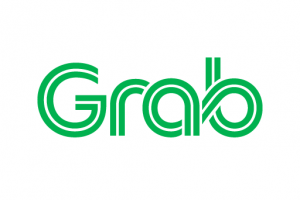 9. Grab
9. Grab
Category: Consumer Payments
Originally founded in 2012 as a taxi-booking app, Grab has become a “super app,” aiming to fulfill multiple everyday needs. Harvard Business School classmates Anthony Tan and Tan Hooi Ling launched the app in Malaysia as MyTeksi, expanding to the Philippines and Singapore as GrabTaxi. GrabBike soon followed, along with the carpooling service GrabHitch. The company was rebranded as Grab in 2016.
In addition to transportation services, Grab offers a digital payment service (GrabPay) and also has an entire financial arm of the company (GrabFinancial), which offers payment, insurance, and financing services, and was granted a digital bank license from Singapore in 2020. It took over Uber’s Southeast Asian operations, adding food delivery to its list of services. In response to the COVID-19 pandemic, Grab launched GrabCare specifically for healthcare workers to get rides to hospitals and added grocery delivery with its GrabMart service.
Headquartered in Singapore, Grab is Southeast Asia’s first startup to be valued at more than $10 billion and is currently valued at almost $40 billion.
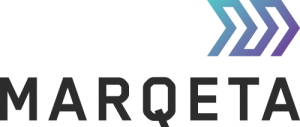 10. Marqeta
10. Marqeta
Category: Card Issuer Process Platform
Marqeta’s modern card issuing platform empowers its customers to create customized and innovative payment cards. Marqeta’s platform, powered by open APIs, gives its customers the ability to build more configurable and flexible payment experiences, accelerating product development and democratizing access to card issuing technology. Its modern architecture provides some of the leading financial innovators in the world, from Cash App and Affirm to JP Morgan and Goldman Sachs, instant access to highly scalable, cloud-based payment infrastructure that enables customers to launch and manage their own card programs, issue cards and authorize and settle transactions.
Marqeta was founded in 2010 and publicly listed on the Nasdaq (MQ) on June 9, 2021. It now has more than 600 employees and is headquartered in Oakland, California with a European office in London, England. Its modern card issuing platform is enabled in 36 countries globally. It was named one of CNBC’s Disruptor 50 in 2020 and 2021, and in 2021 was named one of Fast Company’s Most Innovative Companies.
 11. Revolut
11. Revolut
Category: Mobile Banking
Revolut is a financial services company that specializes in mobile banking, card payments, money remittance, and foreign exchange. It includes a prepaid debit card, currency exchange, and peer-to-peer payments. It is on a mission to build a fair and frictionless platform to use and manage money around the world.
Founded in 2015 by former bank employees Nikolay Storonsky and Vlad Yatsenko, the company was created to disrupt banking in the same way Amazon transformed retail. Originally based in Level39, a financial technology incubator in Canary Wharf, London, Revolut is currently available in 35 countries and has more than 15 million customers. Storonsky and Yatsenko had an initial vision of eliminating fees involved in foreign exchange transactions. Revolut garnered a following with a service that let users spend abroad at the real exchange rate, without any fees.
Six years after being founded, Revolut is now on its way to being valued between $30 and $40 billion, thanks to a potential fundraising round led by Softbank.
 12. Toast
12. Toast
Category: Restaurant Point-of-Sale
Toast is an all-in-one point-of-sale and restaurant management platform for businesses in the foodservice and hospitality space. As a cloud-based system built specifically for restaurants, Toast offers advanced functionality including tableside ordering, quick menu modifications, real-time enterprise reporting, online ordering, and labor management on an easy-to-use interface.
The aim of Toast is to build tools to apply data science and orderly IT processes to address the variables that can be controlled by the restaurant. It also offers links through to a network of some 100 partners, such as Grubhub for takeout food when a restaurant does not cover those services or functions directly, to help stitch together services to work on its platform.
The company was founded in 2011 by Steve Fredette, Aman Narang, and Jonathan Grimm, who met at software company Endeca after graduating from MIT in Cambridge. The restaurant software maker is planning an IPO that could value the Massachusetts-based company at around $20 billion.
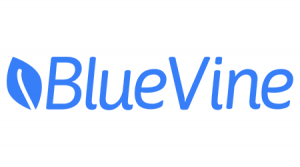 13. BlueVine
13. BlueVine
Category: Business Lending
BlueVine is an online lending service that caters to small businesses with invoice factoring, term loans, and conditional lines of credit. Providing support for those with poor credit who need short-term funding, the company has been helping people stay afloat since before the pandemic.
The company’s policies have attracted over 450,000 small business owners. BlueVine has broken new ground with its completely free business checking account that advertise zero minimum balance requirements, monthly transaction limits, or monthly fees of any kind. Customers can also count on 1.0% interest on business checking balances up to $100,000.
Eyal Lifshitz, BlueVine’s Chief Executive Officer, co-founded the company in 2013. Though based out of Redwood City in California, BlueVine has offices in Los Angeles and Jersey City, New Jersey.
 14. Robinhood
14. Robinhood
Category: Securities Trading
Robinhood is a stock brokerage app that offers commission-free trading. Founded in 2014 by two former Stanford roommates, Baiju Bhatt and Vlad Tenev, the company allows users to invest in and trade stocks, exchange-traded funds (ETFs), options, and American depositary receipts (ADRs). Robinhood is designed to introduce trading to a new generation, hoping to encourage people to enter the stock market. The tool is the fastest-growing brokerage in history and was the first finance app to win an Apple Design Award.
In 2019, Robinhood opened a new service on their application called Robinhood Crypto. Users in California, Massachusetts, Missouri, Montana, and New Hampshire were initially able to trade Bitcoin and Ethereum without paying commission fees. Robinhood's mission is to "democratize finance for all." Ever since the company's initial launch, Robinhood has differed from its financial peers and challenged the traditional money-making path of brokerage services.
Now Robinhood has filed paperwork for its hotly anticipated initial public offering and plans to list its shares on the Nasdaq stock exchange under the symbol HOOD. The company hopes to raise $100 million by going public.
 15. Next Insurance
15. Next Insurance
Category: Insurance
Next Insurance is a digital insurance technology company founded by small business owners for small business owners. Alon Huri, Guy Goldstein, and Nissim Tapiro saw that, while business owners’ needs were changing, the insurance industry wasn’t catching up. This prompted them to found Next Insurance in 2016 and provide tailored coverage to individual businesses, from general contractors to personal trainers.
Headquartered in Palo Alto, California, Next Insurance is based completely online, allowing customers to file a claim or purchase a policy at any time of the day, any day of the week. The company’s technology-first approach uses groundbreaking artificial intelligence and machine learning to simplify the process of buying a policy and to reduce insurance costs by more than 30 percent, compared to traditional policies.
Since its founding, Next Insurance has acquired rival digital insurance agency AP Intego, bringing the company’s customer base to more than 200,000 small businesses. The company also acquired Juniper Labs, accelerating the development of Next Insurance’s machine learning technology to further enhance the customer experience. Next Insurance’s most recent funding round in the spring of 2021 raised $250 million, bringing the company’s valuation to $4 billion.
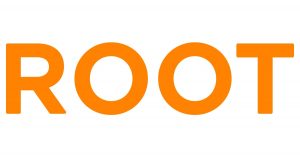 16. Root Insurance
16. Root Insurance
Category: Insurance
Root Insurance is an insurtech company that provides car insurance services. By using smartphone technology and data science to understand actual driving behavior, it determines individualized automobile insurance rates. This allows consumers to purchase car insurance based on their own driving habits. Root also offers hassle-free and affordable app-based renters’ insurance, providing coverage that’s easy to understand and is personalized around real consumer needs.
Founded in 2015 by Alex Timm, Dan Manges, and Matt Armstead, Root was designed with a progressive point of view. This helped them become the first insurtech startup outside the health-care sector to achieve unicorn status in 2018. In 2020, when Black Nascar racer Bubba Wallace found himself at the center of racist backlash after the organization’s Confederate flag ban last summer, Root Insurance’s chief brand officer Kelly Ruoff spearheaded the “Progress Owes No Apology” campaign to support him and the push for real social justice. Root will remain by the driver’s side, as one of the sponsors of the No. 23 Toyota Camry driven by Wallace in the NASCAR Cup Series in 2021.
 17. Cambridge Mobile Telematics
17. Cambridge Mobile Telematics
Category:Insurance
Cambridge Mobile Telematics is a global leader in developing analytics and telematics software for insights into vehicle dynamics and driver behaviors. It has pioneered telematics that determine parameters for behavior-based insurance and introduced the first marketed solution for providing vehicle-based UBI and BBI. CMT’s flagship solution, DriveWell, brings optimal safety to drivers through behavioral analytics.
The company’s platform uses AI, sensor fusion, and behavioral science in risk assessment to provide transparency for insurers, rideshare organizations, automakers, and the overall personal safety industry. In addition to mitigating driving danger, CMT has a real-time crash assistance program. Cambridge Mobile Telematics has become the world’s top mobile telematics provider, supporting 65 enterprise programs in about 30 countries.
2004 saw MIT professors Sam Madden and Hari Balakrishnan develop the CarTel project, which produced a mobile sensing system for drawing inferences from sensor data on mobile devices. They added Bill Powers to their effort and formed CMT in 2010. The company’s acquisition of TrueMotion, a mobile telematics competitor, heightened its global engagement. CMT now serves 85% of the largest auto insurers in the U.S. and extended its reach to Canada, the U.K., Germany, South Africa, Japan, and Australia.
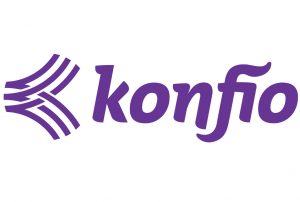 18. Konfio
18. Konfio
Category: Business Lending
Financial technology firm Konfio was founded in 2013 by David Arana and Francisco Padilla and is the largest online lending platform for small businesses in Mexico. Headquartered in Mexico City, Konfio serves small- and medium-sized businesses in Latin America that would otherwise be unable to obtain convenient and affordable loans.
Konfio’s proprietary digital banking and software tools are designed to boost small businesses’ growth and productivity. Customers can apply for a loan in under 10 minutes and receive the money within 24 hours, which traditional banks and lenders cannot offer. In addition to providing loans, it offers a corporate credit card, loyalty program, and business productivity software tools.
In 2021 alone, Konfio has received $160 million from Goldman Sachs and raised $125 million from Lightrock and SoftBank. It plans to use these investments to acquire other fintech companies to integrate into its lending platform and increase its services to clients. Konfio has been named one of CB Insights’s Top 250 Fintechs in the world.
![]() 19. Symphony
19. Symphony
Category: Financial Markets
Symphony is a secure and compliant markets’ infrastructure and technology platform, where solutions are built or integrated to standardize, automate, innovate and liquefy financial services workflows. The Symphony platform is a vibrant community of over half a million financial professionals from 1300+ market participants underpinned by a trusted directory and omnichannel interactions across chat, voice, web, meetings and more.
The company was founded in October 2014 and is headquartered in Palo Alto, CA, with offices in New York, Hong Kong, Singapore, Tokyo, Stockholm, Sophia-Antipolis and London. Symphony powers over 2,000 community-built applications and bots.
 20. Petal
20. Petal
Category: Consumer Lending
Founded in 2016 and based in New York City and Richmond, Virginia, Petal is a new kind of credit card company, built to bring financial innovation and opportunity to everyone Unlike traditional credit card companies, Petal uses its proprietary technology to evaluate applicants based on a “Cash Score” — a combination of income, spending, and savings history. This allows people with no credit history to qualify for a card and build credit, avoid debt, and learn how to spend responsibly.
It also benefits individuals with low credit scores but strong banking histories, especially as the COVID-19 pandemic has cost millions of people their jobs and incomes, causing their credit scores to sink. Petal recently launched a new company called Prism Data, which will allow Petal to share its cash flow-based underwriting technology to other FinTech firms. The company has raised more than $100 million in funding, including more than $55 million in Series C equity funding in 2020, following a robust $30 million Series B round of funding in 2019.
 21. WorldRemit
21. WorldRemit
Category: Remittances
WorldRemit is a startup that enables migrant workers and immigrants living in developed countries to send money back home via competitively priced, quick money transfers. It is a convenient, low-cost alternative to traditional money transfer companies that use high street agents and charge high fees. Money can be received as a bank deposit, cash pick-up, Mobile Money, or mobile airtime top-up. WorldRemit’s services are available to senders in 50 countries.
Over the last ten years, WorldRemit has grown to serve 5.7 million customers, using 70 different currencies across 130 countries worldwide. Over 90% of its transfers are authorized within minutes. The company was founded in 2010 by Catherine Wines, Richard Igoe, and Ismail Ahmed. Ahmed came up with the idea after being a student in London during the 80s, during which time he frequently sent money back home to his family in East Africa. He wanted to help people in similar situations improve the lives of those they care about.
 22. Trumid
22. Trumid
Category: Financial Markets
Trumid is bringing efficiency to credit trading through data, technology, and innovative products. Trumid Market Center, the company's electronic trading platform, provides corporate bond market professionals with direct access to anonymous and counterparty-disclosed liquidity. Trumid's products leverage the network effect and data science to empower all credit market participants with the business intelligence to make more informed decisions.
Trumid was founded in 2014 by Ronnie Mateo, a former trader with close ties to two rising stars from investment bank Lehman Brothers—Mike Sobel and Jason Quinn. Mateo wanted to upend the market with a more efficient online platform and used his savings to do so. Within two years, Mateo recruited Sobel from Lehman’s successor Barclays Capital to be Trumid's president, and Quinn, who’d moved onto hedge fund Millennium, to become chief product officer.
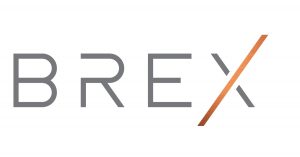 23. Brex
23. Brex
Category: Business Finance
Brex offers all-in-one finance solutions for growing companies. The company helps the next generation of business spend, save, and earn smarter. Brex helps customers take every dollar further by doing more than a bank, bookkeeper, or reward program could ever do alone. Brex offers customers a deposit account, credit card, and spend management software, all wrapped into one easy solution with no fees or minimums.
This solution is powered by Brex’s proprietary software, not outdated legacy banking technology infrastructure. Founded in 2017, Brex has grown from two employees to over 700 and raised more than $940 million in venture capital from investors including Tiger Global, Ribbit Capital, TCV, and Y Combinator. Brex has thousands of customers on its platform, including ownership and equity management platform Carta, global IT company Techwave, consulting company Kruze, wine delivery service Usual, and mobile security provider Lookout.
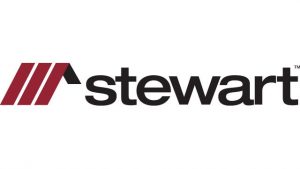 24. Stewart
24. Stewart
Category: Mortgage Solutions
Stewart (NYSE-STC) is a global real estate services company that offers products and services through its direct operations, network of Stewart Trusted Providers™, and family of companies. Stewart is committed to creating an industry-leading platform for customers to drive seamless end-to-end mortgage services and solutions throughout the real estate transaction. Stewart has experienced record growth over the past year and a half, adding 50+ new offices and more than 800 employees, expanding its reach and incorporating new perspectives and talent into their teams nationwide.
A significant factor in this growth is the dozen acquisitions Stewart has made since the beginning of 2020, including the technology companies NotaryCam, Signature Closers, Pro Teck, and more, enhancing its customer offerings through digital mortgage solutions, digital closing tools, appraisal and valuations, and remote notary capabilities. Stewart is dedicated to becoming the premier title services company and the more than 5,500 employees worldwide are committed to doing so by partnering with its customers to create mutual success.
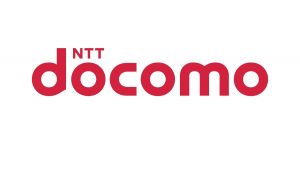 25. DOCOMO
25. DOCOMO
Category: Payments
DOCOMO Digital is the international payments business of parent company NTT DOCOMO, a pioneer in direct carrier billing and innovation in payments and loyalty. DOCOMO Digital espouses the same spirit of innovation and customer excellence, partnering with carriers, merchants, OTT services, app stores, and payment providers in developed and emerging markets worldwide. The company works to solve the challenges of customer acquisition and retention, regulation, and complexity for their partners with alternative payment methods such as direct carrier billing and digital wallets.
With teams based in fifteen countries, they enable their partners to grow their digital services revenues while enhancing customer experience for their users. The robust managed services platform provides coverage across carriers, and locally relevant payment methods enable faster time-to-market, especially for streaming, gaming, eCommerce, and productivity application providers. DOCOMO is the largest integrator of carrier billing for the Google Play Appstore and the Amazon Prime video and music bundles, and they unlock growth in digital revenues for over two hundred mobile carriers around the globe with leading-edge payment and subscription bundling solutions.
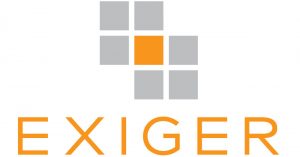
26. Exiger
Category: Compliance
Since its founding in 2013, Exiger has been committed to creating a more sustainable compliance environment. Recognized by global regulators and serving the world’s largest financial institutions, corporations, and governments, Exiger is the only governance, risk, and compliance company to invest equally in subject matter expertise and technology. Exiger helps financial institutions identify and manage risk inherent to their client and third-party populations.
In recognition of the growing volume and complexity of data and regulation, Exiger combines purpose-built AI with industry experts to help clients along in their journey towards more integrated risk and compliance management. Exiger modernizes financial institutions’ approaches to risk assessment, adverse media monitoring, KYC, due diligence, and remediations. Its proprietary software, DDIQ and Insight 3PM, underpins all of Exiger’s solutions and automates the traditionally manual components of identifying, managing, and mitigating risk at scale. Exiger operates out of 11 offices with more than 700 employees around the world.
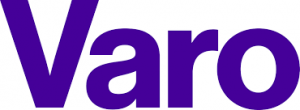 27. Varo Bank
27. Varo Bank
Category: Consumer Banking
Varo Bank launched in 2017 with the vision to bring the best of fintech into the regulated banking system—an all-digital, mission-driven, FDIC insured bank designed around the modern American consumer. The first consumer fintech to be granted a national bank charter in 2020, Varo makes financial inclusion and opportunity a reality for all by empowering people with the products and support they need to achieve financial resilience. Through its innovative technology stack, agile and customer-focused product ethos, and inclusive design principles, Varo is uniquely positioned to address a broad range of consumer needs while profitably serving the marginalized and underserved communities that have been historically excluded from traditional financial institutions.
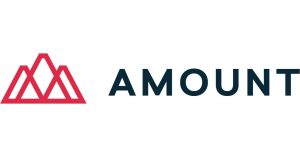 28. Amount
28. Amount
Category: Retail Banking
Amount delivers technology that financial institutions need to create and enhance the digital consumer experience. Built by lending industry veterans, the company helps partners go digital efficiently with omnichannel retail banking experiences and a robust point-of-sale lending solution underpinned by platform features including fraud prevention, verification, and decisioning engines. Bank partners can optimize performance across product categories by tapping into various service offerings including customer acquisition, funnel and performance assessments, and risk analytics.
Amount clients include financial institutions collectively managing nearly $2 trillion in US assets and servicing more than 50 million U.S. customers.
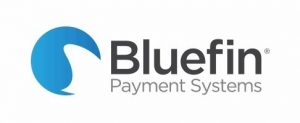 29. Bluefin Payment Systems
29. Bluefin Payment Systems
Category: Payment Security
Founded in 2007, Bluefin is the recognized leader in encryption and tokenization technologies for payment and data security. The company’s security suite includes PCI-validated point-to-point encryption (P2PE) for contactless face-to-face, call center, mobile and unattended payments, and our ShieldConex® data security platform for the protection of Personally Identifiable Information (PII), Personal Health Information (PHI), and payment data entered online. Bluefin’s partner network currently includes over 200 processors, payment gateways and software vendors operating in 43 countries, which provide the company’s security solutions direct to merchants, enterprises, healthcare organizations and more.
Bluefin is privately owned, with investors including Macquarie Group and Napier Park Global. The company has been recognized for its innovative technologies and growth since its inception, including #6 on the Inc. 500 list, FinTech Breakthrough’s Best Financial Transaction Platform for ShieldConex, and is consistently ranked as a Top 40 most innovative company by the Technology Association of Georgia (TAG). Bluefin is a Participating Organization (PO) of the PCI Security Standards Council (SSC) and is headquartered in Atlanta, with offices in Waterford, Ireland.
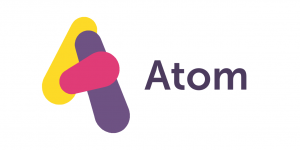 30. Atom Bank
30. Atom Bank
Category: Digital Banking
Atom Bank is a leading digital finance company based in the U.K. that offers banking services through smartphone applications. Atom presents its customers with opportunities for fixed-rate savings products, retail mortgages, business banking secured loans, and more. As the U.K.’s first application-housed bank, the company connects mobile users with consumer-friendly lending and saving policies.
Anthony Thomson and Mark Mullen founded Atom Bank in 2014, and after securing a banking license in 2015, made an official launch with two fixed-term savings accounts the following year. Co-founder and current Chief Executive Officer Mark Mullen was formerly the Chief Executive for First Direct. Since launch, Atom has expedited over 21,000 mortgage offers and assisted 17,000 households with new mortgage completion for a total of £3 billion.
 31. C2FO
31. C2FO
Category: Working Capital
From its first translation in March of 2010, fintech leader C2FO has generated over $100 million in working capital funding. The company has fast-tracked payments by upwards of a billion days and processed around 12 billion invoices for companies in 183 countries. C2FO’s capability to seamlessly match between A/R and A/P has boosted efficiency in provisioning working capital between buyers and suppliers.
The company was founded in 2008 by current Chief Executive Officer and Board Chairman Alexander “Sandy” Kemper; he also founded Perfect Commerce and served as CEO for UMB Bank. Though operating mainly out of Kansas, Kemper stretched C2FO’s operations overseas to cover Europe, China, India, and Australia.
C2FO recently made a significant contribution to Kansas City’s equality and inclusion charities in honor of Juneteenth. The company donated the entirety of one-day marketplace revenue on June 18 and encouraged customers to mark invoices for that day to bolster the grant. It also offered its employees paid time off to participate in Juneteenth volunteering.
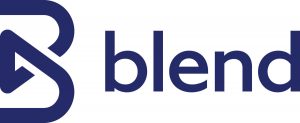 32. Blend
32. Blend
Category: Mortgage Solutions
Blend is an international software platform for mortgage lending undertakings that furnishes applications for real estate appraisal and home buying on both sides of the transaction. Blend partners with 285 institutions to process around $4 billion in consumer loans and mortgages every day. The company’s customer base comprises a large portion of the $2 trillion U.S. mortgage market by origination volume. In 2020, Blend covered a third of the national mortgage market and raised its revenues 90%.
The company’s foray into predictive engines, Blend Intelligence, simulates mortgage origination for clients on Salesforce AppExchange. Blend has constructed a bevy of loan data analysis toolkits, including a Reporting API, a Reporting Dashboard, and Interactive and Generated Reports for more accurate insights. Founded in 2012, Blend was the brainchild of a group of former Palantir engineers. One of the co-founders, Nima Ghamsari, serves as Chief Executive Officer.
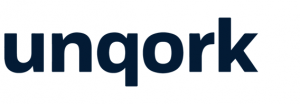 33. Unqork
33. Unqork
Category: Development Solutions
Unqork is a no-code enterprise application platform that helps companies build, deploy, and manage complex applications. Unqork provides a cloud-hosted development platform with a drag-and-drop interface that enables customers to build apps quickly and cost-effectively. Its front end and back end—which can be deployed to single-tenant, cloud-agnostic environments like Amazon Web Services, Google Cloud Platform, and Microsoft’s Azure—collate rules, workflows, and databases to support a range of integrations and data operations and to pull in data directly from trusted sources for real-time use.
The company’s clients include John Hancock, Goldman Sachs, Careerwise, Prudential, Manulife, Liberty Mutual, HSBC, Pacific Life, and Maimonides Medical Center. Unqork was founded in 2917 by Gary Hoberman, an entrepreneur and technology chief executive who has been innovating and bringing transformative solutions to market for more than 25 years. Unqork is rapidly expanding its partner ecosystem, adding 37 new solutions and technology partners in the first half of 2021.
 34. Hippo
34. Hippo
Category: Insurance
Hippo offers a different kind of home insurance, built from the ground up to provide a new standard of care and protection for homeowners. Its goal is to make homes safer and better protected so customers spend less time worrying about the burdens of homeownership and more time enjoying their homes and the life within. Harnessing real-time data, smart home technology, and a growing suite of home services, the company is creating the first integrated home protection platform. Hippo is headquartered in Palo Alto, California with offices in Austin and Dallas, Texas and insurance products available to more than 80 percent of U.S. homeowners in 38 states. Hippo Insurance Services is a licensed property casualty insurance agent with products underwritten by various insurance companies.
 35. QuintoAndar
35. QuintoAndar
Category: Rental Solutions
QuintoAndar is changing the real estate market with a pioneering business model that uses advanced data analytics so property owners can ascertain whether prospective tenants can pay the rent, removing the need for guarantees like security deposits. Currently, QuintoAndar manages over 100,000 rental contracts. The company expanded into home sales in 2019 and has concluded over 1,000 transactions to date.
In May 2021, QuintoAndar announced it had raised $300 million in Series E funding, bringing the company’s market value to $4 billion. It plans to use this funding to launch its first international expansion, beginning with a subsidiary in Mexico, which is expected to begin operations by the end of the year. The company is currently exploring the possibility of launching an IPO. Founded in 2013 by Gabriel Braga and Andre Penha, the Brazilian startup is headquartered in São Paulo with a secondary office located in Campinas.
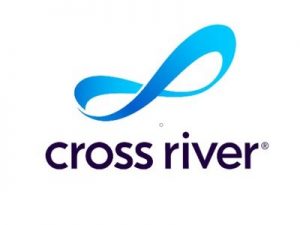 36. Cross River Bank
36. Cross River Bank
Category: Digital Banking
Blending innovative financial technology with a deep well of banking proficiency, Cross River Bank delivers new solutions and services for fintech companies that are, in turn, revolutionizing global financial platforms. Beyond traditional banking ventures, Cross River has built lasting partnerships with technology leaders to form integrated products in the interest of marketplace lending and expedited payment processing. In essence, the company has pioneered what is now commonly known as banking-as-a-service.
Cross River made headlines during the COVID-19 pandemic for leading the charge as a top PPP lender, making over $11 billion in originations to just under 400,000 small businesses. Moreover, it was remarkably quick on the draw, implementing its solution in a two-week timeframe. Giles Gade founded Cross River Bank in 2008 after successful runs at First Meridian Mortgage and Chela Technology Partners. Gade has led his company to become a financial backer for fintechs such as Coinbase, Affirm, Dwolla, and Stripe.
 37. Creditas
37. Creditas
Category: Consumer Lending
Brazilian digital lending platform Creditas has honed its model to offer investment, lending, and financing services at exceptionally low interest rates. By giving borrowers some creativity in putting up collateral, Brazilian consumer loans are kept at affordable rates and are paid in reasonable installments within the platform.
Sergio Furio, a former strategy consultant at The Boston Consulting Group and investment banker at Deutsche Bank, founded BankFacil in 2012. From the outset, Furio was Chief Executive Officer of the 1,600-employee firm now known as Creditas. In addition to its four main offices in Brazil, Creditas has expanded with offices in Spain and Mexico. In its most recent Series D round of fundraising, the firm was valued at $750 million.
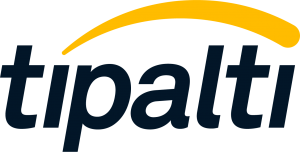 38. Tipalti
38. Tipalti
Category: Business Finance
Tipalti helps businesses manage suppliers, invoices, purchase orders, tax compliance, payments and billing, and other accounting services from a single cloud platform. Its cloud-based solution addresses all phases of the payables workflow, from self-service supplier onboarding and management to tax compliance, invoice processing, global funds disbursement, early payments, and AP reporting and payment reconciliation, while helping to ensure the payer remains in full tax and regulatory compliance. Tipalti, which means “I’ll handle it” in Hebrew, is positioned as a helper in this sector.
The company has processed payments for companies like Amazon, Roku, Twitter, Zumba, Houzz, GoPro, Docker, GoDaddy, Nikon, Vimeo, Indeed, and Seeking Alpha. Tipalti was founded by Chen Amit and investor Oren Zeev. Since its founding in 2010, the supplier payments automation company has gone on to raise $286 million in funding and recently acquired Approve to help solve a broader part of the solution. The company added 191 employees around the globe in the first half of 2021, bringing the total number to nearly 600. The company plans to hire over 200 additional employees in the second half of 2021.
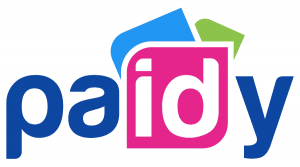 39. Paidy
39. Paidy
Category: Consumer Lending
Paidy is a Japanese financial technology startup that operates a “buy now, pay later” (BNPL) system, allowing users to shop online without a credit card. It is the largest BNPL app in Japan, with more than 5 million account holders. The company was founded in 2008 by Lee Smith and Russell Cummer and uses proprietary models and machine learning to underwrite transactions and guarantee payment to merchants.
After launching its first BNPL product, in which users pay for the accumulated charges at the end of the month, the company added Paidy 3-Pay in 2014, an interest-free way to pay in installments. In 2021, Paidy launched Paidy Link, allowing users to link their PayPal digital wallet to their Paidy account. The partnership with PayPal will enable users to shop at all of PayPal’s 29 million merchants around the world, with each purchase being automatically converted to Japanese yen during checkout.
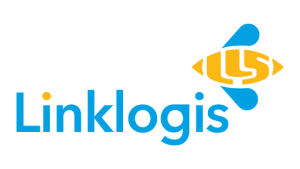 40. Linklogis
40. Linklogis
Category: Supply Chain Financing
Chairman and CEO Charles Song founded Linklogis in 2016 with a team of industry experts in supply chain financing. Linklogis is China’s leading supply chain finance technology solutions provider, applying advanced blockchain and artificial intelligence technologies to improve the efficiency of financial markets and support economic growth.
Linklogis’s purpose-built solutions and industry-leading technology deliver tangible benefits to various stakeholders in the supply chain finance ecosystem, helping to reshape the supply chain finance sector. In 2020, Linklogis became the first Chinese supply chain finance technology platform to secure an international bank as an investor. The company launched its initial public offering in March 2021, debuting on the Hong Kong stock exchange in April 2021 10% higher than its IPO.
 41. Fundbox
41. Fundbox
Category: Working Capital
Fundbox is a financial platform for small businesses with a mission to unlock growth by providing fast and easy access to financial tools and working capital solutions. Fundbox has connected with nearly 300,000 businesses, unlocked over $2 billion in working capital, and invested $100 million into its AI platform to gain deep insights into the small business ecosystem.
The company has received numerous awards including the prestigious Forbes Best Startup Employers and AI 50, Red Herring Top North American 250, CB Insights Fintech 250, and Fintech Breakthrough Awards. Founded in 2013 and backed by the likes of Khosla Ventures, General Catalyst, and Bezos Expeditions, Fundbox currently has 200+ employees and offices in San Francisco, CA; Dallas, TX; and Tel Aviv, Israel.
 42. DailyPay
42. DailyPay
Category: On-Demand Payroll Software
DailyPay is a hypergrowth, New York-based financial technology company that enables employees to control when they get paid. Companies typically pay their staff every two weeks; DailyPay’s software allows employees, who are largely paid an hourly wage, to access their money as soon as they earn it. They partner with 80% of the Fortune 200 companies that offer on-demand pay in just about every industry, from restaurants to retail, to ensure that money is available when needed for employers, merchants, and employees.
The DailyPay platform provides an advanced, accurate, and frictionless pay experience, that can be adopted with ease and integrated seamlessly into any organization’s tech stack. Forward thinking companies across the U.S. turn to DailyPay to help them build a happier, more engaged workforce, which has become especially important as the U.S. economy recovers from the Covid-19 pandemic and subsequent workforce shortage. DailyPay employs about 400 people.
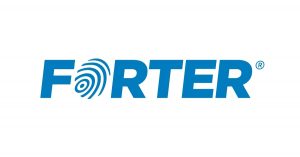 43. Forter
43. Forter
Category: Fraud Protection
Forter is the leader in e-commerce fraud prevention, processing over $250 billion in online commerce transactions and protecting more than one billion identities globally from credit card fraud, account takeover, identity theft, and more. The company’s identity-based, fraud prevention solution detects fraudulent activity in real time throughout all online consumer experiences.
Forter’s integrated fraud prevention platform is powered by its rapidly growing global network, underpinned by predictive fraud research and modeling, and the ability for customers to tailor the platform for their specific needs. As a result, Forter is trusted as the sole or primary risk mitigation engine by Fortune 500 companies including Farfetch, Sephora, Nordstrom, Instacart, Adobe, and Priceline to deliver exceptional accuracy, a smoother user experience, and elevated sales at a much lower cost.
Forter has raised more than $500 million in capital from top-tier VCs including Sequoia, Bessemer Venture Partners, NewView Capital, Tiger Global Management, Scale Venture Partners, March Capital, and Salesforce Ventures. The company has a large global presence with offices spanning North America, Europe, Asia and Australia.
 44. 2C2P
44. 2C2P
Category: Payments
2C2P is a full-suite payments platform that helps global enterprises navigate the complex and fragmented payment landscape of emerging markets. Founded in 2003, the company is headquartered in Singapore with over 400 employees and operates across Asia Pacific and Europe.
2C2P empowers its enterprise clients to go further with its comprehensive range of payment acceptance, issuing, pay-out, remittance, and digital goods solutions. It has an extensive payments coverage with over 250 payment methods and 400,000 alternative payment touchpoints.
2C2P is the preferred payments platform of tech giants, online marketplaces, retailers, insurance companies, and other global enterprises, with esteemed clients ranging from Lazada, Changi Airport Group, Lenovo, Thai Airways, and more.
Recognized by the Financial Times as one of Asia Pacific’s High Growth companies, 2C2P crossed the US $100 million revenue mark in 2020 and has continued to be profitable since 2019. To date, it has raised more than US $50 million from investors like IFC, Arbor Ventures, and Cento Ventures.
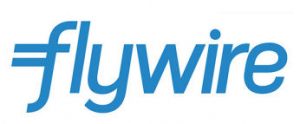 45. FlywirePayments
45. FlywirePayments
Category: Payments
Flywire, an international payments software and enablement company, compounds its next generation payments platform, vertical software, and proprietary payments network to supervise and convey transactions for customers. With engagement in multiple markets such as healthcare, travel, and education, the company works within popular ERP systems to streamline the payment experience and mitigate operational hazards.
Flywire has established a strong presence in the healthcare industry. Four of the ten biggest healthcare systems in the U.S. have Flywire under contract to process all payments. Overall, the company has a clientele of around 2,300 and can handle 130 currencies across 240 countries and territories. Mike Massaro, Flywire’s Chief Executive Officer, brought the company from the conceptual stage to an official launch in 2011, and now to its modern-day zenith. Although headquartered in Boston, Flywire has offices across the globe.
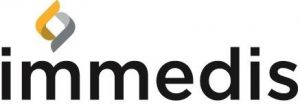 46. Immedis
46. Immedis
Category: Payroll Solutions
Immedis is the leader in consolidated global payroll solutions. Their mission is to deliver real-time and touchless payroll to global companies. Processing payroll in over 150 countries, the Immedis platform provides a unified view of global payroll operations, real-time data analytics, and advanced reporting capability, while ensuring legislative compliance and data security. Immedis’ deep integration capabilities with HCM and finance providers dramatically simplifies multi-country payroll obligations. The company is trusted by some of the world’s fastest growing enterprises like McAfee, Adobe, ServiceNow, and Nutanix.
Immedis is part of the Clune Group, a collection of global companies that deliver focus driven, digitized solutions to simplify the complexity of global business. Ruairi Kelleher, Immedis’ CEO, joined the wider Clune Group in 2012 and along with Terry Clune and Mark Graham, launched Immedis in 2016, utilizing the best-in-class modern technology capability combined with a deep expertise in global taxation.
In December 2020, Immedis announced $50 million in strategic investment from Lead Edge Capital, a U.S.-based venture capital firm. Immedis’ valuation grew to over $575 million in just 18 months, the last round of financing led by Scottish Equity Partners who remain investors in the company.
Immedis’ is headquartered in Dublin, Ireland and has opened offices and operations in the U.S., the U.K., Europe and Australia, with plans for expansion into Asia and South America.
 47. SmartAsset
47. SmartAsset
Category: Financial Advisement & Interactive Tools
SmartAsset is the web’s go-to resource for financial advice that powers SmartAdvisor, the largest marketplace connecting consumers to financial advisors and financial products. Reaching more than 100 million people each month through its educational content and personalized calculators and tools, SmartAsset’s mission is to help people make smart financial decisions.
SmartAsset recently announced that it closed a $110 million Series D funding round, valuing the company at over $1 billion. Since 2018, the company has grown revenue by 10 times and is on the cusp of $100 million in annual recurring revenue. Additionally, financial advisors and firms on the SmartAdvisor platform now generate $1.5 billion in new, closed assets under management (AUM) per month.
SmartAsset appeared on Y Combinator’s list of Top 100 Companies of all time and Forbes’ list of America’s Best Startup Employers in 2020. The company was named the Best Financial Planning Technology Company in New York by Wealth & Finance International in 2021. Furthermore, SmartAsset’s CEO, Michael Carvin, has been recognized as a finalist for the EY Entrepreneur of the Year 2021 New York Award.
With just over 200 full-time employees, SmartAsset plans to grow its headcount by more than 75% in 2021.
 48. MotoRefi
48. MotoRefi
Category: Auto Lending
MotoRefi is an auto fintech company that puts drivers in control of their car payments. Their platform serves as the go-to for consumers to refinance their auto loans, helping them save an average of $100 per month on their car payments in minutes through a seamless digital process.
As a leader in the auto fintech space, MotoRefi is partnered with trusted lenders, from local credit unions and community banks to major national institutions, and other household fintech companies like SoFi. As of spring 2021, the company had experienced 7x revenue growth, 5x loan volume growth, and 2.5x team growth year-over-year, bringing its headcount to over 250 employees.
MotoRefi was founded in 2016 and incubated by QED Investors. It is backed by Goldman Sachs, Moderne Ventures, Accomplice, Link Ventures, Motley Fool Ventures, CMFG Ventures, FireBolt Ventures, Gaingels, and others.
 49. Cadre
49. Cadre
Category: Real Estate Investing
Cadre levels the playing field in real estate by providing qualified individuals and institutions access to fully vetted commercial real estate opportunities. Combining institutional experience with differentiated technology, Cadre empowers investors through direct access, lower fees, and greater transparency. Cadre's mission is to provide more individuals the opportunity to invest in institutional-grade real estate—a traditionally inaccessible, opaque, and illiquid asset class.
Using rigorous analysis based on proprietary data, a nationwide network spanning 400 local operating partners, and an investment team with more than 20 years and $50 billion in transaction experience, Cadre identifies and vets investment opportunities calibrated to offer investors with outsized return potential.
Cadre's platform enables transparent investing and provides investors unique liquidity opportunities through the first of its kind secondary marketplace. In addition, the platform supports more than $1.5 billion in assets under management and has closed dozens of secondary transactions through its online platform. Led by CEO and Co-Founder Ryan Williams, Cadre has raised over $133 mm of corporate capital, backed by investors including Goldman Sachs, Andreessen Horowitz, Ford Foundation, Thrive Capital, and others.
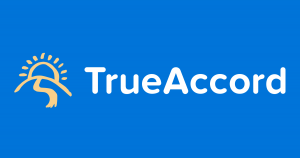 50. TrueAccord
50. TrueAccord
Category: Collections
Founded in 2013, TrueAccord is a digital-first provider of collections and recovery solutions that has worked with more than 16 million consumers of major banks, issuers, eCommerce companies, and direct lenders. TrueAccord’s mission is to reinvent debt collection by delivering great customer experiences that empower consumers to regain control of their financial fitness and help them to better manage their financial future. TrueAccord’s groundbreaking approach to digital debt collection provides consumers with a personalized, digital-first experience while dramatically increasing the efficiency and effectiveness of collection efforts.
The fintech company uses a machine learning capability called HeartBeat to design communication and customer experience tailored to individual consumer preferences. TrueAccord has two solutions targeted to lenders seeking to collect debt — either using the platform themselves or contracting with TrueAccord to collect on their accounts — and a platform that consumers can use to propose settlements on delinquent accounts with collectors. Headquartered in Lenexa, KS and with offices in San Francisco, TrueAccord employs around 350 people working with more than 150 clients and has managed nearly $10 billion in debt.
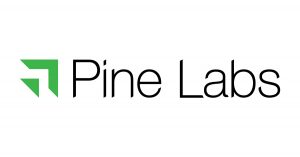 51. Pine Labs
51. Pine Labs
Category: Merchant Payments
Pine Labs is a financial technology company serving India, Southeast Asia, and parts of the Middle East. It was founded in 1998 by Rajul Garg, Tarun Upaday, and Lokvir Kapoor, the current Executive Chairman. Originally a petroleum automation retail solutions player, Pine Labs now provides a merchant platform and makes software for point of sale (PoS) machines.
Pine Labs’ PoS machines integrate with over two dozen banks and financial and technology partners, making it stand out above its rivals, whose payment terminals typically only support integration with a single bank. In addition, the company’s PoS machines are connected to the cloud, and offer a range of additional services, such as working capital, to the merchants. Pine Labs serves over 140,000 merchants and adds over 10,000 new businesses to its platform every month.
Pine Labs acquired the startups QwikCilver and Fave in 2019 and 2021, respectively. The company recently closed a $600 million financing round, bringing its valuation to $3 billion. PineLabs plans to explore an IPO within the next two years.
 52. Divvy
52. Divvy
Category: Business Expenses
Secure financial platform Divvy has managed to unite corporate credit cards and expense management software into a single, all-inclusive platform. The company’s technology offers finance executives real-time clarity on company spend and tools to avoid budget compromises. By eliminating the need for expense reports, Divvy affords top brass a clear picture of finances and frees up crucial time focus on urgent administrative matters.
The company has been a stalwart partner for its clients, dishing out discounts on travel and giving flexible rewards with cash back on purchases. Divvy rates can even beat out travel giants such as Expedia and Hotels.com by 15% to 50%. Any security concerns are unwarranted, as 256-bit SSL encryption is Divvy’s first line of defense against personal data tampering.
Current Chief Executive Officer Blake Murray founded Divvy with Chief Business Officer Alex Bean in 2016. This year, Divvy negotiated a buyout from cloud software provider Bill.com for approximately $2.5 billion in cash and stock. The companies will collaborate on an expanded solution for Divvy’s card-account hybrid precedent.
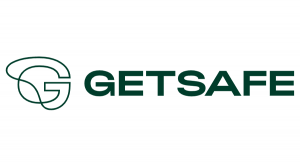 53. Getsafe
53. Getsafe
Cagory: Insurance
Getsafe is a digital insurance company on a mission to create an easy, flexible, and enjoyable insurance experience. With a strong technological backbone, the company offers all of its products and services in one app. Products include liability, contents, and car insurance (among others) in Germany, and contents insurance in the U.K. Getsafe replaces complexity and manual paperwork with smart bots and automation, allowing customers to file claims or change their coverage in real time with just a few clicks. Key customers are first-time insurance buyers like those who are a part of Gen Y and Gen Z, but the app offers its benefits to digital natives regardless of age.
Since launching in Germany in 2018, Getsafe has expanded to the U.K. and is now looking into other European markets. With headquarters in Heidelberg and a satellite office in London, the company has doubled its workforce to over 120 people in the past year. It is one of Europe’s top 10 funded insurtechs (key investors include SwissRe, EarlyBird and CommerzVentures). Under the leadership of CEO Christian Wiens, Getsafe was awarded the Fintech Germany Award 2020 and has recently reached the milestone of serving over 200,000 active customers.
 54. Deserve
54. Deserve
Category: Payments
Headquartered in Palo Alto, Deserve is a fintech mainstay seeking to transform the credit card industry by digitizing the commodity for dedicated online use. Deserve’s compliance framework is adaptable enough to meet the strictest standards set by law. With enhanced identification verification and reliable lending practices, the company strives to guarantee absolute safety and security for financial transactions.
Employing alternative data and machine learning, Deserve has struck deals with other fintechs, financial institutions, consumer brands, and universities to deploy its white-label and co-branded API and SDK-based credit card initiatives. Seneca Women, Notre Dame cards, and BlockFi are a few of the financial service organizations that have tapped Deserve’s technology.
Kalpesh Kapadia co-founded the company, formerly SelfScore, in 2013 and serves as its Chief Executive Officer. The latest news from Deserve was its $50 million score in a Series D funding round. Kapadia intends to use the bankroll, which came from the likes of Mastercard and Goldman Sachs, to expand its geographical reach through staff deployments and marketing.
 55. Global Processing Services (GPS)
55. Global Processing Services (GPS)
Category: Payments
Global Processing Services (GPS) is a multi-award-winning, trusted, and proven payments processing partner servicing many leading challenger fintechs, including Revolut, Starling Bank, Paysafe, Razer Fintech, and WeLab Bank.
Founded in London in 2007, GPS’ highly flexible and configurable platform places the control firmly in the hands of global fintechs, digital banks, and e-wallets, enabling them to deliver rich functionality to the cardholder. GPS powers next-generation payment segments, including expense management, B2B, crypto, lending and credit (including Buy Now Pay Later propositions), digital banking, FX, remittance, open banking, and more.
GPS is certified by Visa — from whom it received a strategic investment in October 2020 — and Mastercard to process and manage any credit, debit, or prepaid card transaction globally. The company employs more than 200 people in London, Newcastle, Singapore, Sydney, and Dubai. It is equipped to meet the stringent standards required by Tier 1 banks and has integrated with more than 95 issuing banks and operates programs for over 180 clients, using over 150 currencies.
GPS has issued more than 170 million cards, enabled in over 48 countries, and last year processed more than 1.3 billion transactions through its platform.
 56. Expensify
56. Expensify
Category: Business Expenses
More than 10 million people around the globe use Expensify's pre-accounting platform to reimburse expenses, manage business credit cards, generate invoices, pay bills, and plan trips from one easy-to-use app. Whether a solo entrepreneur, managing a team, or closing the books for a client, Expensify makes it easy to account for business expenses.
Founded by David Barrett in San Francisco in 2008, Expensify has since expanded around the globe, with nearly 140 employees working from offices in SF, Portland, New York, London, and Melbourne, with even more remote employees worldwide. The product started as an easy-to-use expense reporting app that allows members to submit an expense report simply by snapping a photo of their receipts.
Expensify automates the entire expense management process from receipt to next-day reimbursement, and also offers a corporate card that connects directly to the app, which obviates the need for receipt tracking altogether. Additional features include invoicing and bill pay, concierge travel booking, and a new early-access chat app, Expensify.cash.
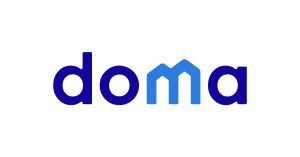 57. Doma
57. Doma
Category: Real Estate Solutions
Doma uses machine intelligence and its patented technology solution to transform residential real estate, making closings instant and affordable. In March, the real estate tech startup rebranded and changed its name from States Title to Doma after announcing it will go public through a merger with SPAC Capitol Investment in a deal valued at $3 billion.
Doma offers solutions for lenders, real estate agents, title agents, and homeowners that make closings simple and efficient, reducing cost and increasing customer satisfaction. Its clients include some of the largest bank and non-bank lenders in the U.S., and the company is rapidly growing. Doma’s patented machine learning technology reduces title processing time from five days to as little as one minute and cuts down the entire mortgage closing process “from a 50+ day ordeal to less than a week.” The startup has facilitated over 800,000 real estate closings for lenders such as Chase, Homepoint, Sierra Pacific Mortgage, and others.
The company was founded in 2016 by Daniel Demetri and Max Simkoff. Simkoff, the current CEO, started an HR analytics company at the age of 25, and later sold it for $42 million at 33.
 58. Riskified
58. Riskified
Category: eCommerce Security
Riskified provides an eCommerce fraud-prevention SaaS solution for enterprise merchants. The New York-based company uses advanced machine learning algorithms to differentiate legitimate purchases from fraud, which guarantees that income against chargebacks.
Founded in 2013 by Eido Gal and Assaf Feldman in Tel Aviv, Riskified also increases bank authorization rates, protects customer accounts from misuse, and allows merchants to offer shoppers alternative payment methods.
Riskified works across numerous verticals and its customers include brands like Trip.com, Wish, Prada, TicketMaster, and Air Europa. Since being founded, the company has raised over $220 million with investors such as General Atlantic, Fidelity Management & Research, Winslow Capital, Genesis Partners, Pitango, and Qumra Capital. The company employs over 600 people across its offices in Tel Aviv and its headquarters in New York.
Recently, Riskified filed for an IPO. In mid-July, the company announced it intends to list its shares on the New York Stock Exchange under the symbol “RSKD.” During the first quarter of 2021, the company’s revenue climbed 54% to $51.1 million.
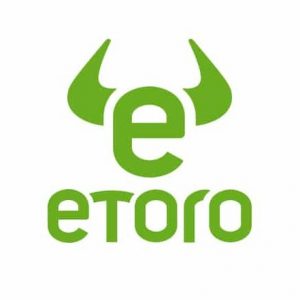 59. eToro
59. eToro
Category: Securities Trading
Israel-based eToro has developed a social trading investment network celebrated for its convenience. Within its network, users can observe the public financial trading activities of others and learn from their examples. eToro’s OpenBook portfolio and CopyTrader programs share live trading information and allow users to replicate successful trades. The firm has an active user base of around 15 million accounts and allows access to 15 cryptocurrencies in its U.S dealings.
Brothers Yoni and Ronen Assia worked with David Ring to launch what was then known as RetailFX in 2007, and today, Etoro has registered offices in Cyprus, Israel, and the U.K. Full-service expansion to the U.S. is next on its docket.
eToro has plans to go public through a SPAC agreement rather than an IPO. Led by Betsy Cohen, the merger will raise the company’s valuation to $10.4 billion. eToro has also dipped into the sport market by inking a multi-year deal as the main partner of football club AS Monaco.
 60. TouchBistro
60. TouchBistro
Category: Restaurant Point-of-Sale
TouchBistro is an iPad-based restaurant point-of-sale system enabling owners to manage reservations and take orders instantly. TouchBistro supports unlimited users and provides free 24/7 support. The system integrates with many popular programs, including QuickBooks, Sage, and 7Shifts, offering a comprehensive customer service lineup, from videos and self-diagnostic tools to 24/7 phone support.
Since its 2010 launch, the point-of-sale provider has grown to power over 16,000 restaurants in more than 100 different countries, while processing over $8.5 billion in payments. The company was founded by Geordie Konrad and Alex Barrotti, who previously founded web-based online storefront creator INEX, which he sold to Infospace in 1999 for $45 million.
With offices in Toronto, New York, Austin, Chicago, London, and Mexico City, the company has been named the Best Restaurant POS by Business News Daily four years running, and is a trusted global leader changing the way restaurateurs run their businesses. Earlier this year, TouchBistro announced that Samir Zabaneh will become the company’s new chief executive officer, replacing founding CEO Alex Barrotti.
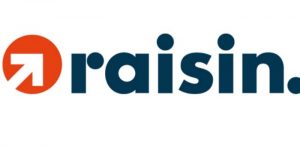 61. Raisin
61. Raisin
Category: Consumer Savings
Raisin, a “savings as a service” financial technology company, was founded in 2012 by Tamaz Georgadze, Frank Freund, and Michael Stephan. Headquartered in Berlin, the company provides services in more than 30 countries worldwide.
Raisin operates a consumer savings and investment product marketplace to revolutionize the way people save by allowing them to compare savings accounts and product offerings in its network over 104 partner banks. The company’s platform is not just intended to help its partner banks grow deposits, but to retain account holders through flexible and unique offerings that are not typically available at most banks. Raisin serves more than 360,000 customers.
In 2020, Raisin launched operations in the United States following its acquisition of Choice Financial Solutions, and further expanded with a partnership with Dallas-based MapleMark Bank in 2021. A merger with rival German FinTech company Deposit Solutions was recently announced; the new company will be named Raisin DS.
 62. MX Technologies
62. MX Technologies
Category: Digital Banking
When Brandon Dewitt and Ryan Caldwell founded MX Technologies in 2010, they knew they wanted to focus on the people, not on the money. Their mission is lofty: to advance mankind and improve the world. Through MX’s products, they know they have the chance to transform the face of the financial industry and change people’s lives for the better.
MX is a software-as-a-service (SaaS) company based in Utah. The company builds data-driven products for more than 2,000 banks, credit unions, and fintech innovators. MX creates solutions to empower more than 200 million customers to understand and manage their finances more easily.
MX has received numerous accolades, including appearances on CB Insight’s Fintech 250 list in 2020; Utah Business’s Best Companies to Work for 2020; American Banker’s Best Fintechs to Work for 2021; and Inc. Magazine’s Best Workplaces 2021. They recently received $300 million in venture capital funding to further expand the company.
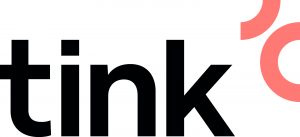 63. Tink
63. Tink
Category: Digital Banking
Tink is Europe’s leading open banking platform that enables banks, fintechs and startups to develop data-driven financial services. Through one API, Tink allows customers to access aggregated financial data, initiate payments, enrich transactions, verify account ownership and build personal finance management tools. Tink connects to more than 3,400 banks that reach over 250 million bank customers across Europe. Founded in 2012 in Stockholm, Tink’s 400 employees serve more than 300 banks and fintechs in 18 European markets, out of offices in 13 countries.
Tink was co-founded in 2012 by Daniel Kjellén and Fredrik Hedberg. The company has raised over $300 million from Dawn Capital, Eurazeo, HMI Capital, Insight Partners, PayPal Ventures, Creades, Heartcore Capital, and others.
This year, Visa announced plans to acquire Tink for $2.15 billion. “Joining Visa, we will be able to move faster and reach further than ever before," co-founder and CEO Kjellén said in a statement.
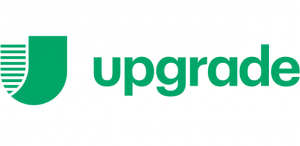 64. Upgrade
64. Upgrade
Category: Consumer Lending
Upgrade is a neobank that offers credit to mainstream consumers through cards and personal loans, together with free credit monitoring and educational tools that help consumers understand and manage their finances.
The Upgrade Card has lower costs than traditional credit cards with no fees or unexpected payments and fixed-rate monthly payments to bring customers’ balances down more quickly, resulting in less interest spending while also allowing funds to be sent directly to a customer’s bank account.
Founded in 2016 by Adelina Grozdanova, Jeff Bogan, Matt Wierman, Renaud Laplanche, Soul Htite, and Visar Nimani, Upgrade is backed by investors that include Ribbit Capital, Santander InnoVentures, Silicon Valley Bank, Uncorrelated Ventures, Union Square Ventures, Ventura Capital, and Vy Capital.
Since launching, Upgrade has delivered over $3 billion in consumer credit through their suite of service and product offerings. Today the company has four offices representing different roles: headquarters in San Francisco, an operations center in Phoenix, and engineering centers in Chicago and Montreal. The neobank has raised $200 million in funding and has a valuation of $1 billion.
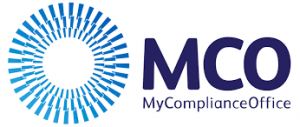 65. MyComplianceOffice
65. MyComplianceOffice
Category: Compliance
MyComplianceOffice (MCO) provides powerful compliance management software that companies around the world use to reduce the risk of misconduct. The MCO solution allows firms to address transactional and personal conflicts of interest in a single platform. It is the only fully integrated, comprehensive, compliance management platform that uses a global company and security master dataset to identify conflicts across firm transactions (deals, loans, research, and trades), employees, and third parties.
Since its separation from Fidelity Investments in 2008, MCO has built a blue-chip customer base of over 450 financial services customers in over 100 countries. MCO’s exemplary performance in highly regulated industries and geographies has given rise to a global client expansion. Complementing MCO office locations in North America and Europe, a worldwide adoption of MCO led the company to establish an APAC office in Singapore in 2019.
The MCO platform has extensive compliance management capabilities to monitor and manage conflicts of interest in a centralized manner across the organization. Firms choose MCO because of its unique integrated platform which addresses employee compliance monitoring and conflicts of interest, third party due diligence and risk management, and trade surveillance and suitability monitoring, The platform includes a transactional conflict of interest module that detects conflicts that occur during the lifecycle of an investment banking or private transaction deal.
MCO helps companies of all sizes meet evolving regulatory needs and expectations, and more readily ensure compliance.
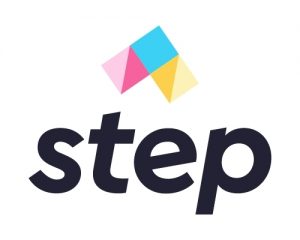 66. Step
66. Step
Category: Digital Banking
Step is a next-generation banking platform built specifically for teens and their families. A first of its kind, Step’s all-in-one banking solution includes a free, FDIC-insured bank account, Step Visa Card, and P2P payments platform. Additionally, Step does not charge fees and is the only product on the market enabling teens to start building credit before they turn 18. With a mission to help improve the financial futures of the next generation, Step makes learning about money management easy, accessible, and intuitive.
Launched just nine months ago, the company has already amassed nearly two million users, serving as the first bank account for 88% of its customers. Step also has strong support from its investors, raising an additional $150 million since its launch, with participation from the likes of Coatue, General Catalyst, Stripe, Alex Rodriguez, Charli D’Amelio, Justin Timberlake, Will Smith, Stephen Curry, and several other prominent celebrities and Silicon Valley executives.
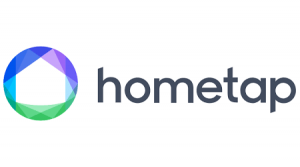 67. Hometap
67. Hometap
Category: Home Financing
Founded in Boston in 2017, Hometap is on a mission to make homeownership less stressful and more accessible. The company offers a smart loan alternative for homeowners who want to tap into their equity without taking on debt. As an investor, not a lender, Hometap gives homeowners near-immediate access to cash (up to $400,000) in exchange for a percentage of the home’s future value. Homeowners can then use the funds for anything from renovations to funding a child’s education, all without any monthly payments or interest.
Hometap’s proprietary risk model looks at hundreds of attributes beyond the standard criteria of credit scores and debt-to-income ratios, allowing them to work with homeowners in need who might have been disqualified from the traditional avenues like a home equity loan or HELOC, and help them to stay in their homes while working to achieve their financial goals.
To date, Hometap has raised $130 million in capital through a combination of venture capitalists and institutional investors, including G20 Ventures, General Catalyst, and ICONIQ Capital, LLC. In 2020, Hometap experienced record growth, tripling its investment volume, doubling its state coverage from six to twelve, and growing its employee base by nearly 110%. In April of 2021, it expanded operations to two more states for a total of fourteen.
 68. Currency One
68. Currency One
Category: Currency Exchange
Currency One SA is one of the biggest companies on the online currency exchange market in Poland (780,000 customers) and the first company that started online currency exchange on a p2p platform in Europe (in 2009).
Currency One has two platforms: Walutomat.pl and Internetowykantor.pl, both of which enable users to exchange currencies quickly and safely. Currency One offers not only currency exchange, but also international money transfers. As the first fintech company in Poland, Currency One joined SEPA Instant, SEPA, and RippleNet. Integration with these global networks gives Currency One's customers new standards of money exchanges and transfers. The Poznań-based company currently employs 100 people.
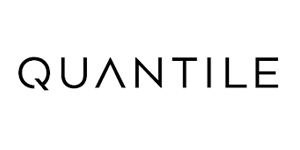 69. Quantile
69. Quantile
Category: Financial Markets
Quantile exists to reduce the size, risk, and complexity of the derivatives market. Powered by unbeatable algorithms and driven by a deep understanding of industry challenges, Quantile increases the efficiency and liquidity of markets, improves returns for clients, and helps make the financial system safer.
Since launching its first services in 2017, Quantile has eliminated over $270 trillion of gross notional through interest rate compression, and billions of dollars in margin through initial margin optimization. Clients include all of the G15 top-tier global banks, regional banks, and other large institutional market participants. Headquartered in London, Quantile also has offices in New York and Amsterdam.
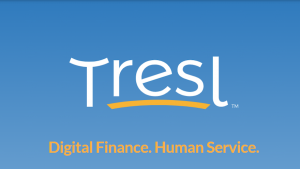 70. Tresl
70. Tresl
Category: Auto Financing
Since 2007, Tresl has been an industry-leading auto finance support platform, specializing in auto refinancing, end-of-lease buyouts, and more. Through Tresl’s innovative e-enablement, innovation, and AI efforts, it offers customers a fully digital banking experience that is convenient, simple, and trusted. Customers can pre-qualify for auto financing online in as little as two minutes with no credit impact. The proprietary platform gives almost instantaneous results and the ability to see the loan rates customers pre-qualify for from multiple lenders at once.
The vision and mission are supported through a variety of offerings, including a technology ecosystem that features a market-leading digital pre-qualification experience, electronic loan approvals, a multi-lender digital fulfillment platform, and a secure customer web portal experience. Tresl was recently named U.S. Fintech Employer of the Year by FinTech Intel, and with over 150 local employees, also made Austin Business Journal’s List of Austin-area Tech Employers — ranking among the top 100 technology employers in Austin.
 71. Steady
71. Steady
Category: Income Intelligence
Steady, an AI-driven Income Intelligence platform, has helped over three million hourly and 1099 workers remove barriers to earn, find the best jobs, and increase their incomes by an average of $5,500 per year. Founded in 2017, the company gives workers access to tools and resources that increase their income and provide a higher quality of life.
Using its proprietary Income Intelligence technology to determine income loss, Steady bestowed ~$4.0M in no-strings-attached, cash grants to Americans whose income was most impacted by the pandemic. This led Steady to independently partner with Andrew Yang and Mayors for Guaranteed Income, a national network of mayors dedicated to advancing direct cash payments to drive economic mobility, as the technological infrastructure used to automate universal basic income programs around the U.S. and measure its impact on recipients.
Steady’s Income Intelligence is now being adopted by state governments to automate benefits onboarding and ongoing recertification for Unemployment Insurance, SNAP, Medicaid and other benefit programs for 1099 and mixed-earners. This allows these workers to own and direct their income data for the first time, filling a massive wage data gap that creates a sizable barrier for them to receive accurate and timely benefits.
 72. Silent Eight
72. Silent Eight
Category: Compliance Solutions
Silent Eight is a technology company leveraging award-winning AI to create custom compliance models for the world’s leading financial institutions. Founded in 2013, Silent Eight’s mission is to empower its clients in their fight to eliminate financial crime. Its name and payment alert solutions are currently deployed in over 150 markets, and the company maintains a headquarters in Singapore and global hubs in New York, London, and Warsaw.
Over the last several years, Silent Eight has experienced explosive growth in both size and scale, including a 2018 announcement that Standard Chartered bank became a global customer and a Series A and subsequent funding round in 2019 and 2020, respectively, led by OTB Ventures, Wavemaker Partners, Koh Boon Hwee, (Chairman and General Partner of Altara Ventures), and SC Ventures. In January 2021, HSBC announced it had signed on for a multi-year partnership with Silent Eight.
The success of the company can be attributed to its founders, Martin Markiewicz, CEO; Michael Wilkowski, CTO; and Julia Markiewicz, COO. Under their leadership, Silent Eight has developed a world-class solution for name and payment screening alert resolution that enables its customers to achieve substantial, proven gains in efficiency and effectiveness for their compliance programs. In 2020 and 2021, Julia was named a Top 25 Women Leaders in Fintech, and Martin was recently recognized as one of the Top 50 Financial Technology CEOs globally in 2021.
 73. Payrix
73. Payrix
Category: Payments
Payrix is on a mission to be the global leader in embedded payments for vertical software businesses. With Payrix, clients have more freedom and peace of mind with a proven solution that helps eliminate friction, unleash their possibilities with new revenue, and make their customers’ lives easier.
Clients like Real Green Systems, Storable, and ResMan have harnessed the unique, all-in-one payment facilitation platform — combined with a white-glove approach — that enables them to capitalize on the opportunities within embedded payments for growth, innovation, and transformation. Payrix meets its clients at the intersection of software and payments with a unique offering that includes payment facilitation-as-a-service, as well as payment infrastructure-as-a-service, used by over 100 active SaaS platforms. Over 35,000 active merchants are leveraging Payrix today.
Payrix has seen 700%+ annual revenue growth this year, all while driving $60 million in annual payouts to software clients in 2021 and more than $130 million expected in 2022. The company was founded in 2015 in Brooklyn, NY and is privately held, backed by PSG and Blue Star Innovation Partners. Payrix has more than 100 employees worldwide and is headquartered in Atlanta, GA with an office in Brisbane, Australia.
 74. Bread
74. Bread
Category: Consumer Lending
Financing platform Bread assists customers in making online purchases with participating retailers in a pay-over-time agreement. As an indirect lender of loans that originate from Cross River Bank, a New Jersey state-chartered bank, Bread enables a seamless checkout optimization that simplifies the process for merchants and partners. The company’s powered APIs give retailers customizable payment options and opens up their businesses to a wider customer base with competitive interest rates.
Under the leadership of Chief Executive Officer Josh Abramowitz and President Derek Joyce, Bread has assembled a team of technology and finance professionals from the likes of Discover, Citibank, Chase, American Express, and Google. In combination with parent company Alliance Data’s payment solutions prowess, Bread drives merchant engagement and helps boost conversion rates.
Alliance Data has tapped international fintech and payments company Fiserv to bring its merchant acquisition services in the mix. Bread will combine Fiserv’s commerce technology with its own turnkey POS lending products to create a top-notch suite of lending solutions for digital and on-site merchants.
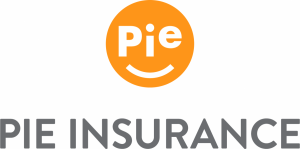 75. Pie Insurance
75. Pie Insurance
Category: Insurance
Pie Insurance offers workers’ compensation insurance specifically for small businesses through a simple online experience that is “easy as pie.” Headquartered in Washington, DC, it was founded in 2017 by Dax Craig and John Swigart.
As a technology-enabled workers’ compensation insurance company, Pie leverages extensive, high-quality data sets to segment and price small business policies, accurately assessing risks and passing savings on to small business owners. Pie is leading the charge to modernize small business insurance, automating the experience to offer simple and affordable coverage.
In 2020, Pie grew its agency by more than 200% and reached more than 1,000 partners. It raised $118 million in Series C funding in 2021, which it plans to use to further develop its automation and technology capabilities, prepare to expand on and launch new business offerings, and conduct strategic initiatives to acquire other licensed insurance companies
 76. Onfido
76. Onfido
Category: Identity Verification
In 2012, Oxford University classmates Husayn Kassai, Eamon Jubbaway, and Rahul Amin were frustrated by the lengthy and inefficient process of getting an identity check. At the time it was still a manual process, so the three teamed up to found Onfido: an identity verification company that uses machine learning technology to create a better experience for both users and businesses. Headquartered in London, England, Onfido has offices in cities across the world, including San Francisco, New York, Paris, Berlin, Mumbai, and Singapore.
Onfido’s online platform has created a new standard for identity verification. Its AI-based technology assesses whether a user’s government-issued ID is genuine or fraudulent and allows users to upload a selfie so Onfido can cross-reference their facial biometrics with their identity document - a much faster and simpler process than Onfido’s founders faced in 2012.
The three founders were named to Forbes’ 30 Under 30 list in 2016. In 2020, Onfido raised $100 million, which it plans to use to expand its business even further, exploring trials for secure virtual voting, verifications for passport and visa applications, and enabling simpler and more effective COVID-19 contact tracing.
 77. VoxSmart
77. VoxSmart
Category: Surveillance Solutions
VoxSmart is a SaaS surveillance technology provider that designs, develops, and deploys software to better manage business risk and meet regulatory requirements. Its team includes experts in finance, regulation, and business analytics that can help find and fix problems encountered by regulated firms in the financial space and beyond.
VoxSmart’s technology captures employee communications, wherever they’re working, and turns the subsequent data into useful information about how business is conducted and operates. VoxSmart helps connect a firm’s people, processes, and technology to deliver operational efficiencies and enable smarter business decisions.
VoxSmart recently secured a $25 million investment from Toscafund to accelerate its vision for an integrated surveillance model to capture and supervise all communications and trade data under one platform.
 78. BrightPlan
78. BrightPlan
Category: Personal Finance
BrightPlan is a leader in total financial wellness. The company was founded in 2016 and is the first financial wellness solution certified for fiduciary excellence. BrightPlan provides a comprehensive personal finance solution for all employees that is real-time, personalized, and integrated with employer benefits. Its unique combination of digital platform and human advisors supports employee personal financial goals at every stage of life, helping enterprises to better attract, retain, and engage talent.
BrightPlan has seen strong growth over the past year and a half, reinforcing that employers are increasingly investing in robust financial wellness benefits. The company has experienced a five-fold increase in annual recurring revenue (ARR) in 2020, a four-fold increase in customers since the beginning of the COVID-19 pandemic in March 2020, and a six-fold increase in employee enrollment in its Total Financial Wellness solution since March 2020.
BrightPlan has raised $9.5 million in a Series A funding round from the Fremont Group, the Cynosure Group, Still Capital Partners, and Hawk Partners. It was most recently awarded the 2021 winner for financial wellness in North America with the Aite Impact Innovation Award, the 2021 Pensions & Investments Eddy Award for communication excellence, and the 2020 “Gold” winner of the Brandon Hall Group Award for excellence in technology.
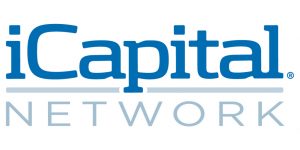 79. iCapital Network
79. iCapital Network
Category: Alternative Investing
iCapital Network is the leading global financial technology platform driving access and efficiency in alternative investing for the asset and wealth management industries. Founded by Lawrence Calcano in 2013, iCapital has grown rapidly, servicing more than $46 billion in invested capital across more than 100,000 accounts.
Aimed at investors with a high net worth, iCapital has transformed the way alternative investments are bought and sold through tech-based solutions. The firm’s financial technology platform offers financial advisors and their clients access to a curated menu of private equity and hedge funds at lower minimums, along with a full suite of due diligence and administrative support in a secure digital environment.
Headquartered in New York City, iCapital also has offices in New Jersey and Switzerland, and recently announced its plans for an office in Greenwich, Connecticut. iCapital was recognized in 2018, 2019, 2020, and 2021 as one of Forbes’s FinTech 50, one of Forbes’s Best Startup Employers of 2021, and won MMI/Barron’s Industry Award as Solutions Provider of the Year in 2020.
 80. YieldStreet
80. YieldStreet
Category: Investment Platform
Yieldstreet is a management platform that provides institutional investors with access to income-generating investment products. The company provides a platform for making alternative investments in areas like real estate, marine/shipping, legal finance, commercial loans, and other opportunities that were previously only open to institutional investors.
Milind Mehere and Michael Weisz co-founded Yieldstreet in 2015 with the mission of democratizing private investing opportunities historically reserved for the top 1%. They decided to leverage growing fintech disruption and give more people access to these previously restricted alternative investments.
Since its inception, Yieldstreet says it has provided more than $950 million in principal and interest payments to its investors. Yieldstreet operates in all 50 states and has funded nearly $1.9 billion on its platform with about 300,000 consumers signed up.
Yieldstreet is known for its Prism fund, which contains a mix of the company’s relatively esoteric investments. The fund has an 8% distribution rate, which means that a $10,000 investment would yield $800 every year. It also has a 1.5% annual fee.
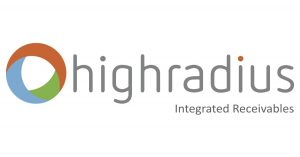 81. HighRadius
81. HighRadius
Category: Payment Processes
Founded by Sashi Narahari in 2006, HighRadius isn’t technically a startup, but that didn’t stop it from raising $300 million in Series C growth funding in 2021. That’s on top of the $125 million in Series B growth funding it raised in 2020 to accelerate its platform development, grow the company, and expand its reach even further across the globe. Based in Houston, Texas, it has a secondary headquarters in India, as well as offices in London and Amsterdam.
HighRadius is a fintech enterprise SaaS company, using autonomous systems based on artificial intelligence to help companies automate accounts receivable and payment processes. Its goal is to help companies get paid faster, reducing the time from billing to payment by 10% – a small number on its face, but of great value to a company’s bottom line.
HighRadius has more than 600 clients, including more than 200 of the Forbes Global 2000. It was recently named as a Forbes Cloud 100 and identified as a leader in both the enterprise and the mid-market editions of the IDC MarketScape for accounts receivable software.
 82. Rapyd
82. Rapyd
Category: Payments
Rapyd was founded in 2016 by Arik Shtilman, Arkady Karpman, and Omer Priel and is headquartered in London, England. The company is a payments platform startup that inserts financial technology services into any app and simplifies the complex offering of local payment methods, helping businesses thrive in any local market around the globe. Rapyd offers more than 900 payment methods in 100 countries.
Originally a mobile payments company, Rapyd quickly expanded into an e-wallet that would allow cross-border commerce. The company offers “Fintech-as-a-Service,” providing a full stack of integrated payments, commerce, and financial services that can be embedded into any application: Rapyd Collect, to grow sales by accepting local payment methods, Rapyd Disburse, to make local or international payments in any method (even cash),Rapyd Wallet, for digital payments, and Rapyd Issuing, allowing companies to offer a virtual debit card.
Rapyd raised more than $300 million in Series D funding in 2021, bringing the company’s valuation to more than $2.5 billion, more than double its 2019 worth. It plans to use these funds to expand both its team and technology, offering increased fraud ID services, and investigate the acquisition of other companies.
 83. HomeLight
83. HomeLight
Category: Real Estate
It can be hard to find a good real estate agent - something that HomeLight’s founder and CEO Drew Uher found out first-hand when he and his wife were researching agents based on needs and qualifications. That experience inspired him to found HomeLight with the goal of helping people find a trustworthy agent quickly and easily.
Launched in 2012 with a focus on helping prospective home buyers, HomeLight later added a branch aimed towards sellers. Its proprietary algorithm aggregates over 100 data sources nationwide, allowing people to identify the best agent for their individual needs, e.g., someone who sells homes quickly, has more than 10 years of experience, or who specializes in working with first-time home buyers. HomeLight has data on more than 2 million real estate agents nationwide.
HomeLight is changing the way people buy houses. It has already received numerous accolades in 2021, including being recognized as one of Forbes’ Best Startup Employers and one of Comparably’s Companies with the Best Outlook for 2021.
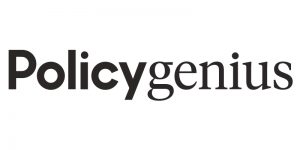 84. Policygenius
84. Policygenius
Category: Insurance
Jennifer Fitzgerald and Francois de Lame were coworkers at McKinsey, working as consultants to major insurance carriers when they decided to strike out on their own to found Policygenius in 2014. Headquartered in New York City and Durham, North Carolina, the company is an independent, unaffiliated digital insurance broker, helping users find the best policy and insurance company to meet their needs.
Policygenius is the United States’ number one online insurance marketplace, allowing consumers to review options, compare quotes, and buy a policy all in the same place. The company also employs a team of licensed agents to walk customers through the process of buying life insurance. Policygenius has more than 30 million users and recently teamed up with women-focused investment service Ellevest to offer life insurance fulfillment to Ellevest’s customers.
As of January 2020, Policygenius has raised more than $161 million, making it the most well-funded direct-to-consumer startup ever. Fitzgerald, the CEO, was named to Inc. Magazine’s Female Founders 100 lists in 2018 and 2019 and named Ernest & Young’s New York Entrepreneur of the Year in 2019.
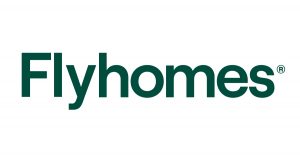 85. Flyhomes
85. Flyhomes
Category: Real Estate
Taking advantage of a pandemic-driven home buying blitz, Seattle-based brokerage company Flyhomes has certainly been flying high of late. With cash offers abounding in competitive markets like Seattle and San Francisco, it has had a lucrative year that saw transaction volume surge by 240%. Flyhomes provides end-to-end brokerage services that include consumer education tools and a Buy Before You Sell program that gives sellers the opportunity to unlock equity from their existing home.
The company has now done business with 2,700 customers and handled $2.6 billion in home buying and selling transactions. Those figures encompass $200 million in mortgage transactions and $850 million in brokerage transactions within the last year.
Co-Founders Tushar Garg and Steve Lane met in business school in 2015 and became licensed real estate agents to better understand the market; their joint efforts emerged as Flyhomes in 2016. Though the venture operates mainly out of West Coast markets such as San Francisco, Los Angeles, San Diego, and Portland, it has also expanded to Boston and other East Coast locations in recent years.
Flyhomes is now valued at around $800 billion following a $150 million infusion from a Series C round of funding.
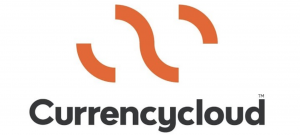 86. CurrencyCloud
86. CurrencyCloud
Category: International Payments
U.K.-based payment platform company CurrencyCloud has made waves as a foreign currency exchange automation innovator. Its technology cuts out the hassle and inefficiency of traditional cross-border payments through malleable APIs. Digital currency management is simplified with automated end-to-end payment processes and conversion services. With CurrencyCloud, clients can fund as many as 34 foreign currency wallets provisioned with real-time wholesale rates.
Germinating from a small office in east London, CurrencyCloud has grown quickly into a 400-employee company that processes more than $1 billion per month in international payments. Chief Executive Officer Mike Laven guided the company from initial funding in 2012 to current-day international operations in New York, Amsterdam, Singapore, and Wales.
CurrencyCloud’s most recent round of funding raised $80 million with new investors Visa and BNP Paribas joining the fold alongside extant shareholders such as Google Ventures. This year, Global Processing Services has teamed up with the company to further widen accessibility to cross-border payments and create an enterprise-grade, off-the-shelf, pre-integrated solution for financial translation needs.
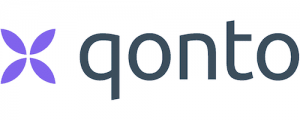 87. Qonto
87. Qonto
Category: Business Banking
When Qonto’s founders Steve Anavi and Alexandre Prot launched their first business, they were frustrated with their banking experience, finding it complex, time-consuming, and outdated. Thus, Qonto was born in 2017: the digital bank by entrepreneurs, for entrepreneurs. The company is based in Paris and serves customers in France, Spain, Germany, and Italy.
Qonto’s ambition is to build the best business banking service existing by using technology and design, with fair and transparent pricing. The company believes banking should be efficient, attractive, and affordable. Qonto offers tools and integration to make finance management and accounting simple.
In January 2020, Qonto raised $115 million in Series C funding. Currently, Qonto has more than 150,000 customers using its services, 45,000 of whom used Qonto to create their own company. Qonto is the only online neobank to be included on the prestigious Next40 index of French technology companies and was recognized by Wired and LinkedIn as one of the best startups to work for.
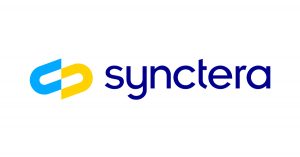 88. Synctera
88. Synctera
Category: Community Banking
Synctera is building a partnership banking marketplace connecting community banks with fintech platforms. The platform reduces risk, ensures compliance and speeds launches to market for fintech companies and banks alike. Synctera creates meaningful connections between community banks seeking more customers and fintech platforms that need a licensed partner to operate in the U.S. Among the thousands of small banks across the U.S., Synctera’s forte is working with banks with between $300 million and $500 million in assets.
Launched in 2020, the company was co-founded by Chief Executive Officer Peter Hazlehurst, former head of Uber Money, head of Google Wallet and Chief Procurement Officer at Yodlee, as well as Chief Technology Officer, Kris Hansen, and Head of Product, Dominik Weisserth.
 89. Continuity
89. Continuity
Category: Regulatory Technology
Founded in 2008, Continuity is a leading provider of regulatory technology (RegTech) solutions that automate compliance and risk management for financial institutions of all sizes. By combining regulatory expertise and cloud technology, the company provides a proven way to reduce regulatory burden and mitigate compliance risk in an efficient and cost-effective platform.
The company offers compliance products (RegAdvisor Pro, RegAdvisor State, ControlsBuilder, and RegControls), a RiskAdvisor, and other vendor, performance, and consulting products. Headquartered in New Haven, CT, its 25 employees assist over 250 clients.
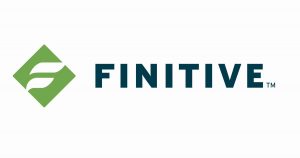 90. Finitive
90. Finitive
Category: Financial Services
Founded in 2017, Finitive is a leading data-driven, private credit marketplace with access to over 700 institutional investors and $6 trillion in accessible assets under management (AUM). Through its tech-enabled platform, institutional investors access a multi-trillion dollar market of private credit opportunities across multiple asset classes and structures, including specialty finance, online lending, marketplace lending, and private credit funds. Finitive matches borrowers with investors using self-reported and external data points. Proprietary algorithms score, price, and connect borrowers to capital providers quickly and efficiently.
Borrowers gain efficient access to capital via a global network of investors who are actively allocating to private credit. Many borrowers have secured a large multiple of their existing capital base through Finitive, transforming their businesses and creating substantial shareholder value. Finitive’s deal origination engine draws opportunities from across the world, providing investors with a source of private credit transactions not found anywhere else. All investments are funded directly by investors to borrowers, with no intermediary entity to add to time and costs.
Finitive has appeared on multiple lists since its inception, including United States Financial Services Companies and New York Female Founded Companies.
 91. Alan
91. Alan
Category: Health Insurance
Paris-based digital health insurance platform Alan offers personalized healthcare services to millions of Europeans. Jean-Charles Samuelian and Charles Gorintin founded the company in 2016 and established a distributed workforce with employees in France, Spain, and Belgium. Alan has the distinction of being the first independent digital health insurance provider in France since 1986 to secure licensing from the French Prudential Supervisory Authority (ACPR).
The startup’s unique line of health applications has been built entirely in-house. Alan’s objective is to simplify the management of health insurance for individuals, employers, and organizations. As an investment prospect, Alan has scored major capital injections from Index Ventures, CNP, Partech, and Portage. A recent €185m investment from Coatue has brought the start-up into unicorn status.
At the beginning of 2021, the company launched a free application called Alan Baby that is meant to help parents get a better handle on infant medical needs. In the near future, Alan plans to introduce a personal care guidance service to match individuals to the correct healthcare professional based on particular health issues. The startup’s expansion is ongoing; executives have designs on a 400-person hiring spree within three years and are looking to dip into other industries with custom-made insurance products.
 92. Scalable Capital
92. Scalable Capital
Category: Portfolio Management
Scalable Capital offers a platform to monitor and manage investment portfolios investing in shares, manage trades, and exchange traded funds for a flat fee of €2.99 per month. Scalable currently has some 80,000 customers across Germany, Austria, and the UK. Using its services both directly and via bank partners, the startup says it has more than $2 billion under management on its platform with plans to build more products for those customers, add more customers in those regions, and potentially look to expand into additional countries in Europe.
The company was co-founded by Adam French, Erik Podzuweit, Florian Prucker, Manuela Rabener, Patrick Poschl, Simon Miller, and Stefan Mittnik in 2014. Launched amid the boom in robo-advisors, Scalable has pivoted its business significantly over the last year. Initially it offered a direct-to-consumer business, but it has changed directions, offering a new platform that lets users trade unlimited shares, ETFs, and hold ETF savings accounts for a flat fee.
Scalable now has over 230 employees as well as headquarters in Munich and an office in London. Scalable Capital recently opened a location in Berlin to attract more talent, particularly in the fields of engineering, client success, and marketing.
 93. Bought By Many
93. Bought By Many
Category: Pet Insurance
Though Bought By Many first entered the insurance market in 2012, the company’s venture into covering household pets circa 2017 has become its trademark. By becoming the U.K.’s first pet insurer to offer online, form-free claims, it has helped thousands of animal owners find peace of mind with inventive and flexible insurance plans. Bought By Many flourished amid pandemic lockdowns with the FirstVet application in its arsenal, connecting pet parents with registered veterinarians through unlimited access to video calls.
Co-Founders Steven Mendel and Guy Farley have matched the company’s accelerated growth by spreading their team across three offices in the U.K and introducing coverage in Sweden. Along the way, Bought By Many acquired exotic pet insurer Exotic Direct as a sister company to augment coverage opportunities.
Bought By Many has raked in a plethora of awards for its stellar contributions to pet health and safety. It was voted Best Pet Insurance Provider in the 2020 Insurance Choice Awards and reached a coveted 4.7 out of 5 rating on software-as-a-service evaluator Feefo. The company also ranked 30th on the Sunday Times Tech Track 1000 for 2020.
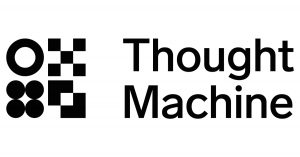 94. Thought Machine
94. Thought Machine
Category: Banking Services
Thought Machine’s mission is to solve one of the banking industry's biggest problems: reliance on outdated IT infrastructure. The firm specializes in developing cloud native technology for banks as an alternative to the legacy core banking platforms that high street lenders struggle to modernize.
Thought Machine’s primary product and technology is called Vault, a platform that contains a range of banking services: checking accounts, savings accounts, loans, credit cards, and mortgages. Thought Machine does not sell directly to consumers but sells by way of a B2B2C model.
Founded in 2014 by former Google engineer Paul Taylor, Vault enables tier-one banks and fintechs to build a truly modern customer experience, free from the constraints of legacy technology. Thought Machine names Lloyds Banking Group, Standard Chartered, Atom bank, Monese, Curve, and SEB as clients.
The company is staffed by a gaggle of former Google employees, including the Chief Executive Officer, Chief Technology Officer, Chief Information Officer, and Chief Operations Officer, as well as a number of its engineers, whose mission is to build new foundations for banking.
 95. Coalition
95. Coalition
Category: Insurance
Coalition is in the business of solving cyber risk. This insurance company provides coverage for cyber and security endeavors with a host of comprehensive insurance and cybersecurity tools. Its cyber risk management platform gives customers a line of defense against cybercrime with threat intelligence, automated security alerts, and more. Coalition can reinforce companies in the U.S. at up to $15 million of insurance, and those in Canada have a cap of CAD $20 million.
Co-founded by cybersecurity veterans John Hering and Joshua Motta, Coalition has built an international workforce with employees in the U.K., Canada, Switzerland, and Portugal. Current Chief Executive Officer Motta recently backed the global expansion efforts by hiring Chief Marketing Officer Dylan Steele, formerly of Salesforce and Splunk. Presently valued as a $1.8 billion unicorn, Coalition’s latest Series D funding round in March 2021 amounted to $175 million.
Coalition made it onto Forbes’ 2021 Fintech 50, which celebrates the most innovative fintech companies. The staff is assuredly proud of their company, having earned a spot on Inc. Magazine’s Best Workplaces list for 2021.
 96. Guideline
96. Guideline
Category: Retirement Investing
When CEO Kevin Busque founded Guideline, he did so out of necessity. Like any good company owner, he wanted to provide for his employees, but the majority of his employees were not taking advantage of benefits like a 401(k). The process of signing up was too complex and the process of investing was too confusing. Guideline was founded to make setting up a retirement plan straightforward and transparent.
Guideline’s innovative software offers 360 integration with payroll systems, automates plan administration and compliance, and even government filings. Its plans are customizable for each company - and each employee.
In just a few years, Guideline has amassed over 20,000 clients, from large corporations to small businesses. It has three offices across the United States: headquarters in San Mateo, CA, Portland, ME, and Austin, TX. Guideline was named one of Fast Company’s Most Innovative Companies of 2019 and to Forbes’ Fintech 50 in 2018 and 2019.
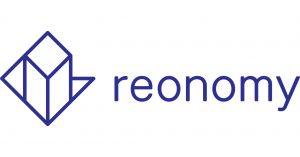 97. Reonomy
97. Reonomy
Category: Real Estate
Reonomy is a real estate technology company headquartered in New York City. The company was founded in 2013 by Charlie Oshman, Guillermo Sanchez, Harlan Milkove, and Richard Sarkis. The four founders brought to the table experience in data software and engineering, entrepreneurship, and business and venture capital funding - everything you need to launch a tech startup.
Using artificial intelligence, big data, and machine learning, Reonomy provides unparalleled access to property information for commercial real estate companies. Their database covers more than 50 million properties, almost 99% of the commercial properties in the United States. As of 2019, Reonomy had more than 100,000 customers, from mortgage lenders and property acquirers to those who work in the property industry in a more hands-on way, such as contractors, who might want to view a list of properties built during a certain time frame that might be due for repairs.
Reonomy recently announced partnerships with eXp World Holdings, one of the world’s fastest-growing residential and commercial real estate companies, and Project Destined, a non-profit organization that provides real estate training for young people in underserved communities.
 98. GoCardless
98. GoCardless
Category: Business Payments
Cultivating a powerful global payments network that facilitates simplified business compensation has been the mission of GoCardless since 2011. The company has transformed how organizations collect payments by making bank debits much more accessible and modestly priced. GoCardless has grown to process about $13 billion in transactions annually and cover 50,000 international businesses. Although notable clients include the Guardian and TripAdvisor, small to mid-size businesses can count on GoCardless for their specific needs as well. The company’s roster of subscription and billing software partners includes QuickBooks, Sage, Salesforce, and Xero.
Chief Executive Officer Hiroki Takeuchi hatched the idea for his business when he and two friends were spitballing ideas for fast and easy business payment procedures that suited modern business trends. Following the inauguration of GoCardless in 2011, Takeuchi embarked on a global expansion that brought branch deployments to Paris, Munich, Melbourne, and San Francisco.
This month, accounting platform Pennylane has struck up a partnership with GoCardless to give start-ups an optimized payment collection option. Using the former’s newfangled subscription management process and the latter’s widespread bank debit network, the union is meant to produce an inventive automatic debit solution for due payments.
 99. Clearbanc (Clearco)
99. Clearbanc (Clearco)
Category: Alternative Investing
Operating out of Toronto, Clearco (previously Clearbanc) maintains an impressive suite of performance financing products for business founders in all stages of organizational development. The company has made its mark as one of the pioneering firms in the burgeoning alternative finance market, giving revenue-reflective advances to early-day ventures in the digital commerce, mobile app, and SaaS markets. Clearco’s ClearAngel platform facilitates these payments, offering beginning startups a cash infusion with any investment stake.
Andrew D’Souza and Michele Romanow founded the company in 2015 and they’ve dipped into myriad channels to shape their approach to financial data evaluation. Having raised more than $680 million in investment capital, Clearco has grown to establish a presence in the U.K. with new business offices and made forays into other parts of Europe this year, including the Netherlands.
Clearco is particularly famous for bringing the “20-minute term sheet” platform to the fore. It lets e-commerce organizations raise marketing growth capital of up to $10 million based on ad spend and revenue. Founders D’Souza and Romanow utilized rapid capital deployment and have placed over $2.5 billion in around 5,500 companies.
 100. Tide
100. Tide
Category: Business Banking
Tide enables small and mid-sized companies (SMEs) to open a business bank account they can manage through a mobile app or a web console. Alongside standard features such as the ability to transfer funds to other accounts, Tide provides an array of tools aimed at making it easier to manage day-to-day business expenses.
George Bevis launched Tide in 2017, and today the company is backed by entrepreneurs including Zoopla founder Alex Chesterman and William Reeve, co-founder of Lovefilm as well as venture capital funds Passion Capital and LocalGlobe.
The firm also offers an automated bookkeeping service and integrated invoicing. Tide developed an API that enables integrations with loan provider, iwoca, and with accounting software such as Xero, FreeAgent, ReckonOne, and Sage. Tide was one of five fintech disruptors to launch Xero Bank Feed integration, alongside Starling Bank, TransferWise, Revolut, and Soldo.
Since launching five years ago, Tide had its biggest year yet in 2020, with the SME digital banking provider now counting more than five per cent of the UK’s SMEs as customers—that’s 330,000 member businesses and nearly 400,000 business accounts.
























